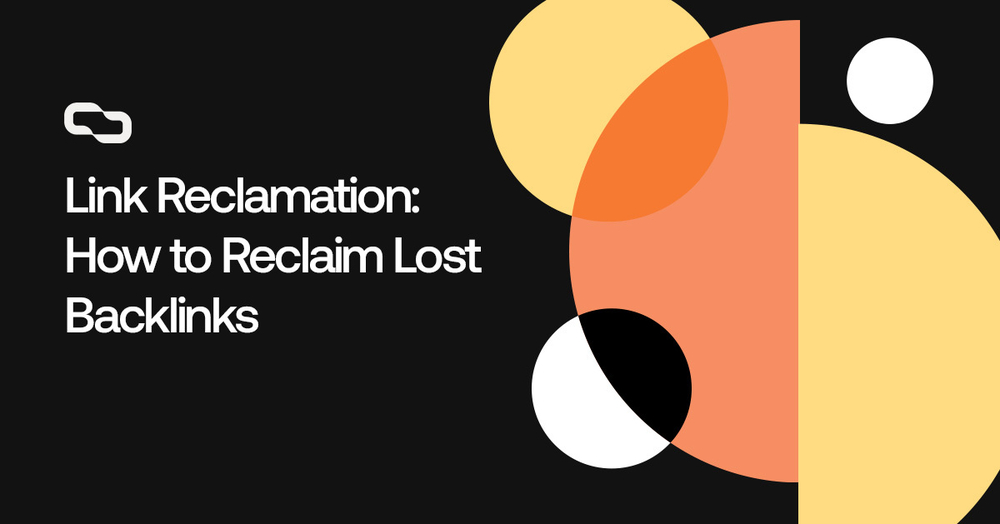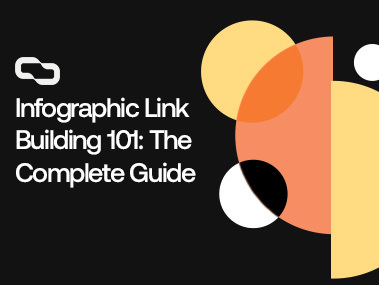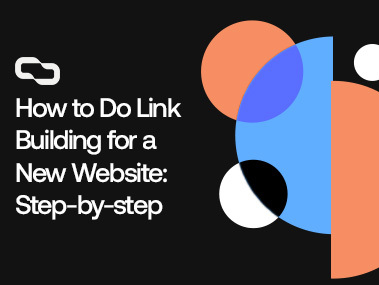Get links on brand new relevant articles for a boost of Authority and Relevance that’ll catapult your SEO. Our links include both DR and Traffic, so you don’t have to choose between one or the other.

In this guide, I’ll share with you 20 ways to build local links.
We used these local link-building tactics to land hundreds of backlinks for our clients, so we know they work.
I’ll even share insider tips from the agency to help you with your own local link-building strategy.
So without further ado, let’s jump right into it.
Key Takeaways
- Local link-building is the process of getting backlinks from other businesses in your location.
- Local links are important because they help Google and other search engines understand where your business is located and how good it is, so they can rank you higher for local keywords.
- The number of local links you need to rank depends on how many links your top competitors have.
What Is Local Link Building?
Local link building is the process of acquiring backlinks from relevant local businesses to help search engines understand that your business is located in that area, which results in higher rankings for local search results.
For example, if I’m a roofing company and I get a lot of links from businesses in Los Angeles, then Google will understand that my roofing business is in Los Angeles, California.
Thus, It’ll show my website when someone searches for “roofing company in California” or any keyword with local intent.
How Many Local Links Do I Need to Rank?
There is no set amount of local links you need to rank.
Every keyword is different.
Some will require 100s of links, while others may require no links at all.
The best way to know how many local links you need is by analyzing what is already ranking on Google.
Simply use a tool like ahrefs or Semrush to see how many backlinks the top results have, take the average, and that’s it.
Obviously, there are many other factors to consider, but this should give an idea of how many local links to build.
What Links Do We Need for Local Businesses?
When it comes to local websites, we need two types of backlinks:
1. Local Citations
Local citations are any mention of your business’s name, address, and phone number information (NAP) online.
Usually, they come from local business directories, local news sites, forums, social media profiles, etc.
While most citation links are no-follow and don’t provide any “link juice,” they’re an extremely important local SEO strategy.
This is because citations help Google verify that you’re a real business and that you’re located where you claim you are — which will help you rank higher on the local map pack.
Agency Tip: Make sure your NAP information is consistent.
2. Do Follow Backlinks
These are the regular backlinks that you get from guest posts, niche edits, etc.
They provide Google with 3 crucial signals:
- Relevance: Backlinks help Google understand the topic of the page. For example, if you’re a local plumber and you get links from other pages about plumbing, then Google thinks that there is a higher chance that your website is also about plumbing. Backlinks can also give location relevance signals. For example, if I get a lot of backlinks from local Chicago magazines, there is a high chance my business is in Chicago.
- Power: This is what we often refer to as “link juice.” In simple terms, the more backlinks your page has, the more juice it’ll have, and the higher it’ll rank. It’s important to mention that not all backlinks are equal, and some backlinks pass more juice than others. You can determine the power of a link from the website’s domain rating (DR) and the page (UR), obviously the higher the better.
- Trust: Google views backlinks as votes of confidence. If someone is linking to your page, it’s like they are telling Google that your content is high-quality. Links from big publications like Forbes, The Guardian, or any major players in your niche can give the most amount of trust because Google values their votes more.
How to Build Local Links?
1. List Your Business on Aggregator Sites & Directories
This is how we’ll get our local citations.
First, list your website on the major data aggregators:
- Google Business Profile
- Data Axle
- Foursquare
- Neustar Localeze
- YellowPages
- Bing Places
- Yelp
- Apple Maps
- Social Media Profiles
Next, join online business directories.
For example, if you’re an electrician, you can simply search for “top electrician directories” on Google, and join the top ones.
Finally, you need to list your business on local directories.
For example, if you have a roofing company in Denver, search for “top Denver business directories” and list your business.
2. Get Listed on Your Local Council & Chamber of Commerce Websites
The best link you can ever build to your business is the one from your local Chamber of Commerce website.
First of all, these websites have huge domain authority, so a link from them would be very powerful.
Second, they manually vet each application, and Google knows that!
This means that their backlinks signal a lot of trust to Google, and validate that you’re actually a real business.
Finally, a backlink from your city council or Chamber of Commerce provides strong local relevance signals, so search engines will be more confident in associating your website with that location.
So if your Chamber of Commerce has a website with directories or pages dedicated to local businesses, make sure to contact them and get your business listed.
3. Reverse Engineer Your Competitors
50% of local link building is prospecting.
You can spend tens of hours finding good backlink opportunities.
Or…
You could let your competitors do it for you.
Using a backlink tool like ahrefs or semrush, you can check all the backlinks your competitors have.
Now, all you have to do is export this list and make them an offer they can’t refuse.
4. Reach Out to Local Media
Local newspapers, radio stations, TV channels, and blogs are always on the hunt for a good story.
So why not make your business one of those stories?
Getting featured in local publications doesn’t only get you a solid backlink but also provides a great boost to your brand’s visibility.
People trust their local news, and being mentioned there can instantly position your business as a trusted player in the community.
The trick to this local link-building technique is to offer a compelling story.
That’s why my favorite way of getting those links is to conduct data studies.
For example, let’s say I’m trying to get a dentist in Wichita, Kansas featured in local publications.
I’ll start by thinking of interesting angles that would get some news traction.
For example, tooth decay in children in Wichita.
After that, I’ll start gathering some stats like:
- The percentage of kids with tooth decay in the city categorized by age
- How many sweet snacks do they eat per day and their favorite brands
- How often do they brush their teeth and for how long
- How much does a visit to the dentist cost on average
Then, I’ll put all my findings in one press release with a title like: “M&Ms is the biggest contributor to tooth decay in Wichita Children.”
Now, that’s a newsworthy story.
Finally, I’ll start promoting my piece. I’ll share it on social media, contact journalists and media outlets, share it with blogs in my niche, etc.
Just go crazy with it!
How would I collect the data? You might ask.
Well, that’s actually the hard part.
In my example, the study is a bit complex and would take a lot of time and resources to conduct.
However, you could do a much simpler one and get good results with it.
For example, you could write a piece with the title “The cost of visiting a dentist has increased by 15% compared to last year” where all you have to do is compare dentist visit prices for 2 or 3 years.
Even if your business doesn’t have the data, you can always find survey participants on Reddit, Facebook groups, local forums, etc.
Agency Tip: The best way to find survey participants is email lists. Contact magazines or other big local websites in your city/state, and buy advertising space in their newsletter. Also, make sure to offer a freebie for participants to increase engagement.
5. Host or Speak at a Local Event
Local events offer a two-fold advantage: They solidify your local reputation and can be a treasure trove for high-quality backlinks.
Here are a few ways to earn backlinks from local events:
- Check Local Listing: Local government sites, community hubs, and event calendars often promote local events and, more importantly, link back to hosts, partners, or speakers.
- Use Facebook: Local Facebook groups are great for finding and promoting events. Join these groups and see where you can fit in.
- Become a Guest Speaker: Business expos and seminars are ripe with opportunities. These events not only require guest speakers for keynotes, but they also promote them heavily online. If you speak at these events, you typically get a dedicated bio section on the event website, which usually means — yes, you guessed it — a link back to your website.
Agency Tip: Speaking at events doesn’t just give you a platform to voice your expertise, but it’s also a valuable networking opportunity.
6. Sponsor Local Organization
Local organizations often have sponsorship pages — where they feature and link out to the websites of their valued supporters.
This is a gold mine for local SEO — especially if these organizations are non-profit — as all the donations will be tax deductible.
So you’re helping your local community and getting backlinks at the same time.
That’s 2 birds with one cheque.
How to find local sponsorship opportunities? You might ask.
We can start by using simple search operators, such as
- inurl:sponsors “City name”
- intitle:sponsors “City name”
- intext:sponsors “City name”
These custom searches will highlight pages in your city that have a section dedicated to sponsors.
After that, you can start reaching out to organizations, clubs, or sports teams in your city to see if a sponsorship can land you a link on their website.
7. Partner up With Other Local Businesses
Local link building is more than just earning mentions on websites.
It’s about building relationships and creating mutual growth opportunities with other local businesses.
Here are a few collaboration ideas that can both grow your business and get you backlinks:
- Create a Mutual Promotion Agreement: Identify businesses that complement yours, but aren’t direct competitors. For instance, a coffee shop might collaborate with a local bookstore. They could run joint promotions: a free coffee with every book purchase or a discount at the bookstore with every coffee shop receipt.
- Spotlight Features: Dedicate a section of your website to highlight your local partners. Share their story, products, or services and why they matter to the community. In return, request a similar spotlight on their website. This doesn’t only establish trust with your clientele but also creates reciprocal backlinks.
- Bundle Up Services or Products: Offer bundled deals combining products or services from both businesses. This not only boosts sales but can also lead to joint marketing campaigns, press releases, or posts on both websites.
- Host Joint Events or Workshops: Combine resources to host events that cater to both business’s audiences. This can range from workshops to community events.
- Shared Loyalty Programs: Introduce loyalty cards or discount vouchers valid at both business locations.
8. Apply to Local Awards
Many local news outlets have award sections that spotlight the best local businesses.
By applying to awards relevant to your industry, you’re not just seeking recognition but also eyeing the golden backlink and press coverage that come with it.
To find these award opportunities, use search operators like:
- inurl:awards “Your City Name”
- intitle:awards “Your City Name”
- intext:awards “Your City Name”
Remember, it’s not just about the link — it’s the credibility and trust that comes with being an award-winning business in your locale.
Agency Tip: You can also create and give out awards. The key, however, is to remain relevant. For example, if you’re a local plumber, you can give out an award for the best hardware store in town.
9. Offer a Scholarship
Local colleges and universities are always searching for financial aid opportunities for their students.
By offering a scholarship, even a modest one, you can make a difference in a student’s life. Plus, educational institutions have top-tier domain authority, and they often have dedicated pages for scholarships where they link out to different opportunities.
Here is how to do scholarship link-building:
- Start a Relevant Scholarship: You must offer a scholarship that is relevant to your business. For example, if you’re an electrician, you can create a scholarship for electrical engineers.
- Create a Scholarship Page: Provide details about the scholarship, the purpose behind it, who should apply, its monetary value, etc.
- Reach Out: Contact relevant educational institutions and explain the opportunity you’re offering
10. List Your Business on Alumni Pages
Ever thought about your old school or college?
Many educational institutions have alumni directories on their websites where they showcase success stories or local businesses owned by former students.
Simply reach out to your alma mater, share your business details, and get a quality local backlink.
It’s that simple.
11. Collaborate with Local Influencers & Bloggers
Influencers and local bloggers might not have a large following — usually less than 10,000 — but they can do wonders for your business reputation.
Plus, most of them have their own blogs, so that’s another quality backlink for your website.
Remember, relevance is key. It’s a lot harder for some industries to find influencers, but that’s fine. It’s just another weapon in your local link-building strategies arsenal.
12. Create Unique Images
Imagine this: You’re writing an article on why roofs leak.
You put together the best guide ever on the causes of roof leaks with thoughtful tips to fix the issue.
However, there is only one problem: You don’t have enough pictures to make your article more appealing.
So you go to free image websites like Pixapay or Freepik to get some pictures of construction men fixing roofs and things like that.
Then, you upload them to your article with an attribute to the image owner.
Well, that’s how you can get local backlinks.
Not by writing the guide, but by providing the high-quality pictures.
Here is how to use images for building local links:
- Do Keyword Research: Start by finding out what pictures people actually search for.
- Take The Pictures: You don’t have to get a professional to take the pictures, but at least make sure they look good.
- Optimize Your Pictures: Add your keywords in the image alt text and file name to help them rank on search engines. For example, instead of using generic filenames like “IMG123.jpg”, use descriptive ones like “construction-worker-on-roof.jpg”.
- Watermark Subtly: Consider adding a discreet watermark with your brand or website’s name. It ensures that even if someone uses it without your permission, viewers can trace it back to you.
- List Your Pictures on Free Sites: Sites like Freepik, Pexels, Pixabay, Unsplash, and many more allow you to upload pictures for free. So sign up and start uploading your pictures.
- Monitor with Reverse Image Search: Use Google’s reverse image search to track where your images are being used online. If someone uses your image without giving credit, kindly reach out and request they link back to your site.
13. Create Linkable Content
The best way to build links is to create valuable content that people want to naturally link to it.
But to be honest, that’s really hard.
This type of content takes a lot of time and resources to create, and the results can often be disappointing.
With more webmasters understanding the value of backlinks, it’s a lot harder to convince them to link out to you for free — even if you have a very good resource.
That’s why most link builders prefer other methods like guest posting.
However, you can still create content that attracts links with very little effort.
How?
By targeting local keywords.
Local keywords are a lot easier to rank for, and it’s for a reason.
The search volume is super low.
However, there are some advantages that come with ranking at the top of Google — backlinks.
When writers research a topic, they often use the top Google results for the query as references.
This is especially true if you have a statistics page or a local guide that is truly helpful.
For example, if you’re a California-based gym, you can make a guide about the highest protein fast foods in California.
If you’re a landscaping company in Texas, you could write guides about how to take care of your lawn in Texas, the best grass for shade in Texas, etc.
This method won’t only get you super relevant traffic that can convert but also the chance to earn backlinks naturally.
14. Contact Local Tourist Boards & Travel Websites
This method works really well if you’re in the entertainment or travel industry.
Tourist boards and travel websites often recommend local restaurants, bars, hotels, bowling alleys, etc. as things to do in the city.
This can bring you very good traffic. Plus, that juicy backlink.
So if you have a local business that visitors may find interesting, make sure to utilize it.
15. Use HARO
Help A Reporter Out (HARO) is a platform that connects journalists with industry experts.
Journalists post queries seeking expert insights for their articles, and professionals, like you, can respond with their expertise.
It’s a win-win: journalists get valuable insights, and you get a chance to be quoted in their articles with a link back to your website.
Now, while HARO sounds straightforward, there’s an art to using it effectively, especially for local link building.
Here are some actionable tips to get backlinks from HARO:
- React Quickly: Local journalists are often on tight deadlines. When you see a relevant query, respond ASAP. The early bird gets the link!
- Personalize Your Pitch: Mention something specific about your previous work or how your local insight can add value to their story.
- Follow Up: If you’ve sent a pitch and haven’t heard back, a gentle reminder can work wonders. But remember, journalists are busy folks. Be patient and respectful.
- Explore HARO Alternatives: While HARO is fantastic, don’t put all your eggs in one basket. Platforms like Featured, Qwoted, and SourceBottle are also great to connect with local journalists.
- Play The Long Game: Building relationships with local journalists can lead to more opportunities down the line. Don’t be disheartened if you don’t get a link immediately.
16. Utilize Unlinked Brand Mentions
Ever noticed your local business name popping up online, but there’s no link back to your site?
That’s an opportunity waiting to be tapped!
You can find unlinked brand mentions using this search operator:
intext:[Your Business Name] -[Your Business Website] -twitter.com -facebook.com -pinterest.com -youtube.com
17. Write Guest Posts
Simply cold emailing websites, offering “high-quality guest post” doesn’t work any more.
You need to stand out by offering them real value.
Here is one way to offer value:
- Begin with Research: Find blogs or websites in your niche that have a good link profile.
- Identify Content Gaps: Use tools like Ahrefs (or similar) to find out what keywords these sites aren’t targeting, but could benefit from.
- Craft a Unique Pitch: Reach out to them, highlighting these content gaps. Tell them how much engagement they’re missing out on by not targeting these specific keywords.
- Seal the Deal: Offer to pen down a piece of content for them that targets these gaps. Make sure to underline that it’ll be tailored for their local audience, ensuring better engagement.
18. Consider an Acquisition
There are plenty of blogs and expired domains out there than can be bought for a fair price. Ever thought of acquiring one?
Buying and redirecting domains to benefit from their SEO value still works, but there is a catch.
It has to be relevant. Don’t buy a gardening blog if you’re running a gym downtown.
The more relevant the blog, the more value it offers in terms of local SEO and organic traffic.
19. Offer Testimonials
Businesses love to share their happy clients’ testimonials on their websites.
It provides the social proof they need to convert visitors into paying customers.
Now, when you provide testimonials, you often get a link to your website — which makes them amazing local link-building opportunities.
So make a list of all businesses you work with, tools you use, or even your favorite restaurants and reach out to them offering a testimonial.
Agency Tip: Branch out! Local art exhibitions, workshops, or community events can also be great candidates for testimonials.
20. Build Internal Links
You’ve been working hard to gain those quality backlinks, but have you considered the power of links that are already at your fingertips?
I’m talking about internal links.
Internal links are crucial for passing link juice from one page to another.
They can also highlight important pages.
When a page gets a lot of internal links, it’s like you’re telling search engines that this content is valuable.
Finally, internal links can improve topical and location relevance. For example, if you have a page about the family law services you offer in Chicago, you can link to it from a blog post about how to file for a divorce in Chicago.
It’s like telling Google, “Hey, this is super relevant to the family law niche and Chicago!”
FAQs
Why Is Local-Link Building Important?
Local link building is important because it helps Google understand where your business is located and how popular it is, so they can rank you higher for local search queries.
What Are Local Links?
Local links are any backlinks you get from businesses or websites in your business location.
For example, if I’m a barber in San Diego and I get a link from a restaurant that is also in San Diego, then that’s a locally relevant link.
Conclusion
Local link-building isn’t about begging websites for links.
It’s about creating relationships with other businesses in your community.
Here at Get Me Links, we have more than 5 years of experience in local link building.
We have worked with many different local businesses, small and big.
From mom-and-pop stores to 8 figure law firms.
So if you want us to take care of link-building for you, feel free to book a consultation call with one of our link-building experts.
Find out your exact cost of ranking for your dream keyword
Find out nowLet’s get you ranking now
If you want the team at Get Me Links to help you get more traffic
Book a call NOW Back to Blog
Back to Blog 19 Minutes Read
19 Minutes Read


